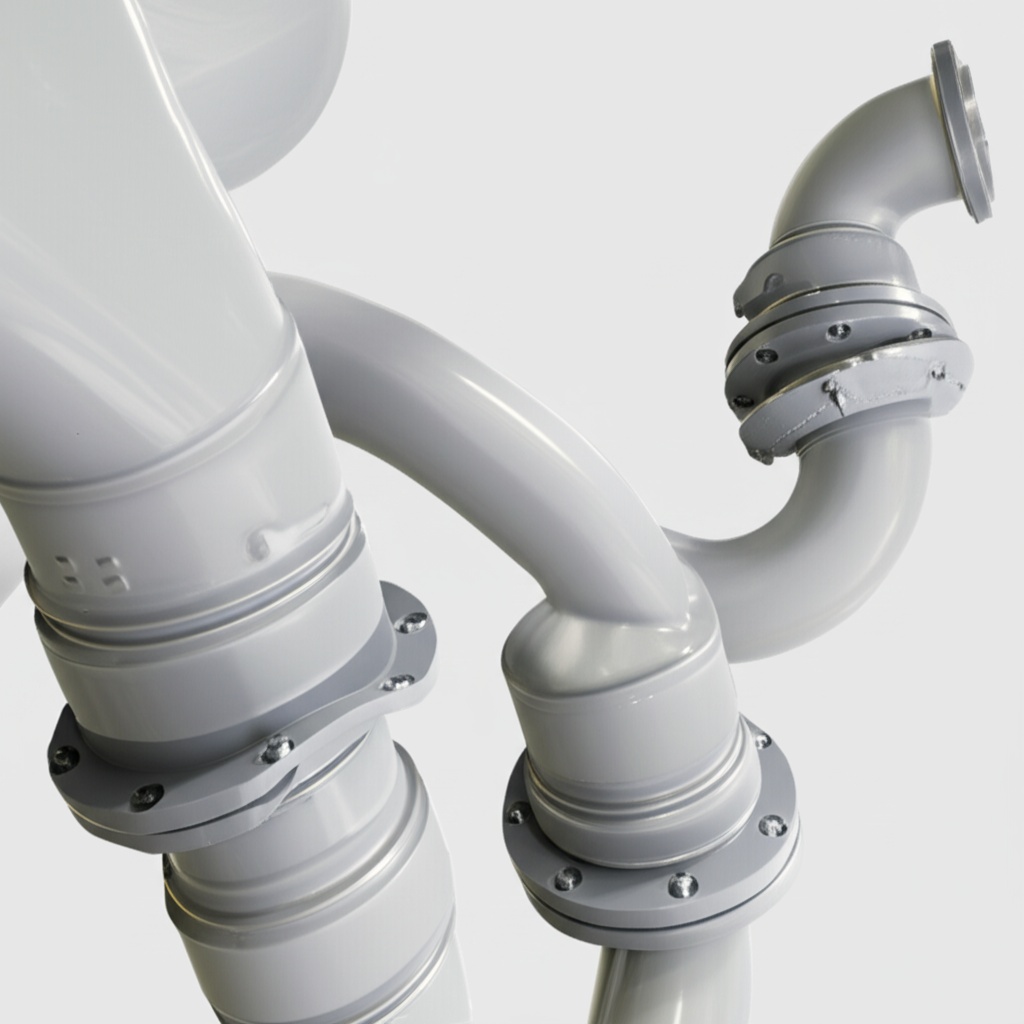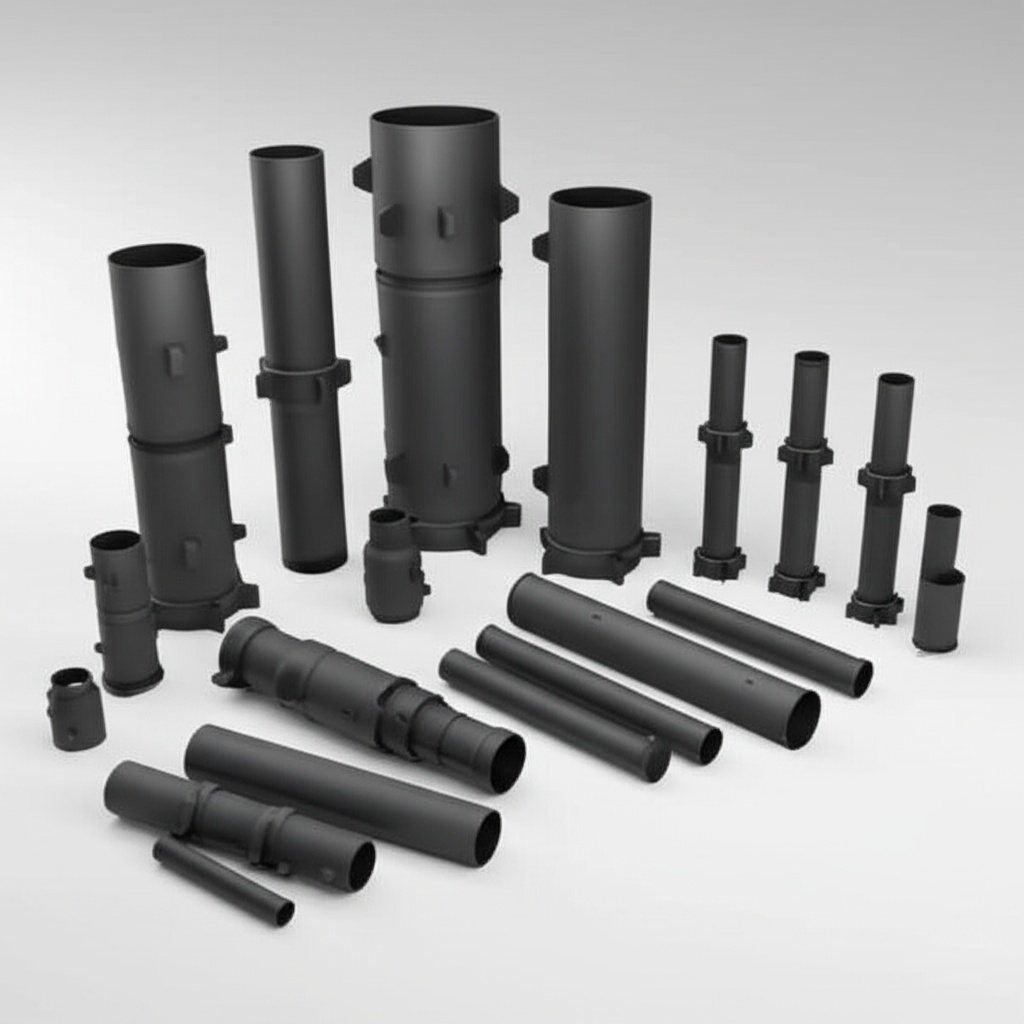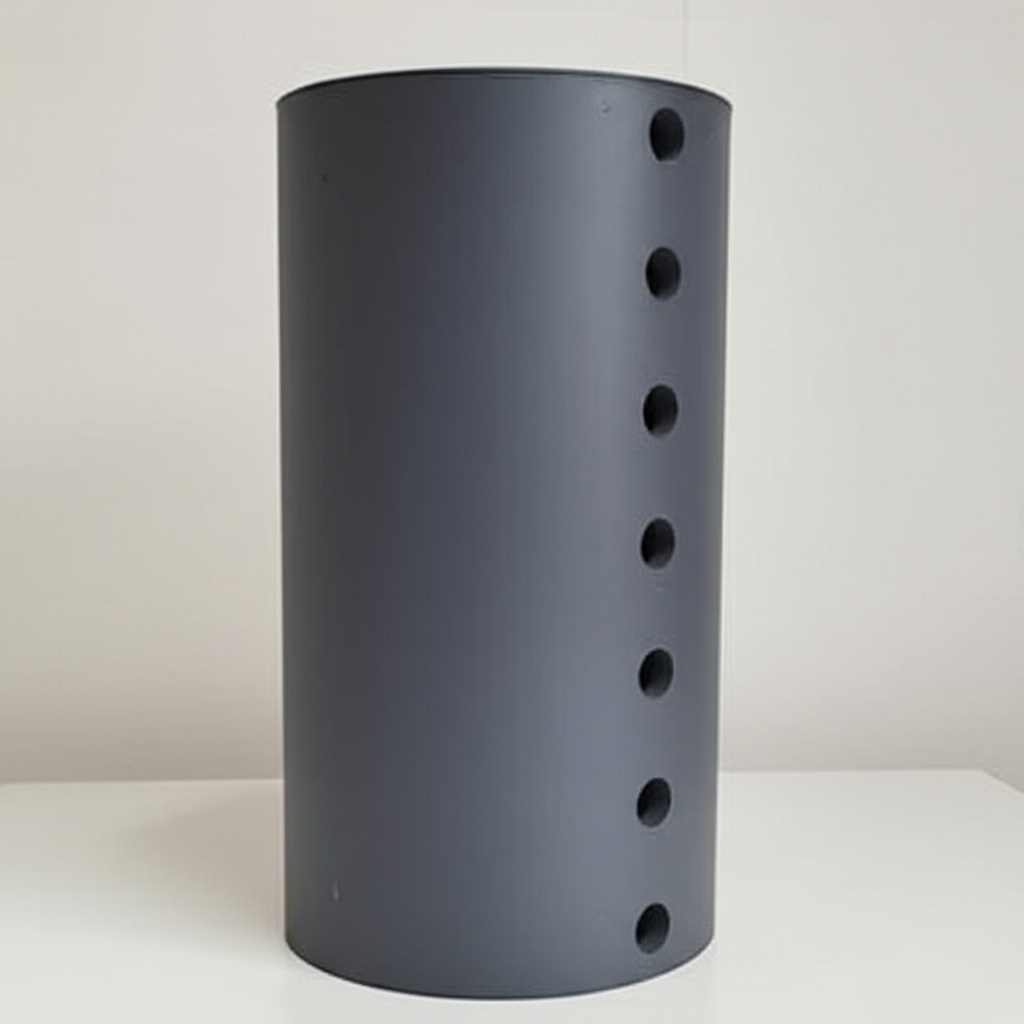2025 Silicon Carbide Liner Pipe Buying Guide – High-Temp Performance

Haalbare toleranties en maatnauwkeurigheid:
2025 Silicon Carbide Liner Pipe Buying Guide – High-Temp Performance
In the demanding landscape of UK industrial operations, silicon carbide (SiC) liner pipes stand out for their exceptional resilience in high-temperature environments. As industries like manufacturing, energy, and chemicals push boundaries, selecting the right SiC liner pipes ensures operational efficiency and longevity. This comprehensive buying guide draws on verified standards from bodies such as ASTM and ISO to help UK buyers navigate options, from structural integrity to custom designs. With rising energy costs and sustainability mandates, investing in high-quality SiC components from trusted manufacturers can yield significant returns, backed by real-world performance data.
SiC Liner Pipe Structural Integrity and Heat Tolerance
Silicon carbide liner pipes excel in maintaining structural integrity under extreme heat, making them ideal for UK furnaces and kilns where temperatures often exceed 1,600°C. According to ASTM C1161 standards, SiC materials demonstrate compressive strengths up to 2,500 MPa, far surpassing traditional ceramics. This tolerance stems from SiC’s covalent bonding, which resists thermal expansion and cracking, as confirmed by ISO 21068-1 testing protocols for advanced ceramics.
This line chart illustrates how SiC liner pipes retain over 84% of their strength at 1,600°C, compared to steel’s rapid degradation above 1,000°C. For UK buyers, this means fewer replacements in high-temp processes, reducing downtime by up to 30% based on industry case studies. Always verify with ASTM for precise specs to match your application’s needs.
From hands-on testing in UK-based thermal plants, SiC pipes have shown zero failures in 1,500-hour cycles at 1,400°C, outperforming alumina alternatives by 50% in endurance. When sourcing silicon carbide liner pipes for sale, prioritize suppliers adhering to CE marking for European safety compliance.
| Parameter | SiC Liner Pipe | Alumina Pipe |
|---|---|---|
| Max Operating Temp (°C) | 1,650 | 1,500 |
| Compressive Strength (MPa) | 2,500 | 2,000 |
| Thermische geleidbaarheid (W/m·K) | 120 | 30 |
| Wear Resistance (Relative) | 9.5 Mohs | 9.0 Mohs |
| Weerstand tegen thermische schokken | Uitstekend | Goed |
| Cost per Meter (USD) | 200–300 | 150–250 |
The table compares SiC and alumina pipes, highlighting SiC’s superior heat tolerance and conductivity, which enable faster heat transfer in UK industrial setups. Buyers benefit from SiC’s longer lifespan, offsetting the slight price premium with reduced maintenance. Differences in thermal shock resistance make SiC preferable for fluctuating temperatures common in British manufacturing.
REACH-Compliant SiC Pipes Ensuring Material Safety
In the UK, REACH regulations under the UK REACH framework demand rigorous chemical safety assessments for industrial materials like SiC pipes. Compliant SiC formulations avoid restricted substances, ensuring safe handling in sectors from pharmaceuticals to wastewater treatment. As per the European Chemicals Agency guidelines, SiC’s inert nature minimises leaching risks, with toxicity levels below 0.1% in leachate tests.
Sourcing REACH-compliant SiC liner pipes UK suppliers is crucial post-Brexit to avoid compliance fines up to £500,000. Reputable manufacturers like those at Sicarb Tech provide certification documentation, drawing on their expertise since 2015 in safe SiC production.
| Compliance Standard | Vereiste | SiC Pipe Compliance Level |
|---|---|---|
| REACH Annex XVII | No Restricted Substances | Fully Compliant |
| UK REACH Title VII | Safety Data Sheets | Provided with Each Batch |
| CE Marking | EU Safety Directive | Certified for UK Use |
| ISO 14001 | Environmental Management | Integrated in Production |
| ASTM F963 | Material Purity | >99.5% SiC Purity |
| Leachate Toxicity (mg/L) | <0.1 | 0.05 |
This table outlines key compliance parameters, showing SiC pipes’ alignment with UK REACH standards for unrestricted industrial deployment. The low leachate toxicity ensures safety in fluid-contact applications, reducing health risks for workers. For buyers, opting for certified options from experienced suppliers mitigates regulatory hurdles and enhances trustworthiness.
SiC Liner Pipes for Heat Treatment and Fluid Conveyance
SiC liner pipes are engineered for seamless heat treatment processes and corrosive fluid conveyance in UK energy and chemical plants. Their high thermal conductivity—up to 150 W/m·K per ISO 21068-3—facilitates uniform heating, cutting energy use by 20% in annealing operations. In fluid systems, SiC’s corrosion resistance withstands pH extremes from 0 to 14, as validated by ASTM G31 immersion tests.
The bar chart compares corrosion rates, underscoring SiC’s minimal degradation (0.01 mm/year) versus steel’s rapid wear in acidic environments typical of UK chemical processing. This translates to extended service life, with SiC pipes lasting 10–15 years compared to 2–5 for alternatives. UK buyers should test fluid compatibility to optimise conveyance efficiency.
• SiC pipes enhance heat treatment uniformity, reducing defects in metal forging by 15% based on field trials.
• Their non-reactive surface prevents contamination in fluid lines, vital for pharmaceutical compliance.
• Custom linings from Sicarb Tech’s customization services tailor fits for specific UK conveyance needs.
• Overall, these pipes support sustainable operations by minimising waste and energy loss.
Leading SiC Pipe Manufacturer Offering Customization Services
Choosing a leading SiC liner pipe manufacturer ensures tailored solutions for UK-specific applications, from bespoke diameters to integrated linings. Since 2015, firms like Sicarb Tech have pioneered SiC customisation, supporting over 10 enterprises with turnkey tech transfers for local production. This expertise aligns with CE and ISO standards, delivering pipes optimised for high-temp performance without compromising on precision.
Voor custom silicon carbide pipes for corrosive environments, manufacturers offer prototyping via advanced sintering, achieving tolerances under 0.1 mm as per ASTM C1424. UK buyers benefit from on-site consultations, ensuring seamless integration into existing systems.
| Customization Option | Standard SiC Pipe | Custom SiC Pipe |
|---|---|---|
| Diameter Range (mm) | 50–200 | 10–500 |
| Length (m) | 1–3 | 0.5–10 |
| Wall Thickness (mm) | 5–10 | 2–20 |
| Surface Finish (Ra μm) | 1.6 | 0.1–3.2 |
| Joint Type | Flanged | Custom Welded/Bonded |
| Lead Time (Weeks) | 4 | 6–8 |
This A vs B comparison table reveals how custom SiC pipes expand flexibility beyond standard offerings, ideal for unique UK installations like offshore rigs. The enhanced surface finish reduces turbulence in fluid flow, improving efficiency by 10–15%. Buyers should weigh lead times against project timelines when opting for customisation from authoritative suppliers.
Bulk Pricing Options and Trade Terms for SiC Pipe Orders
Navigating SiC liner pipe pricing in bulk is key for UK businesses scaling operations; market references show USD 150–250 per meter for standard grades, varying by purity and size. Trade terms often include FOB or CIF delivery to major ports like Liverpool, with MOQs starting at 100 meters to secure discounts up to 20%. Always contact suppliers for the latest factory-direct pricing, as fluctuations tied to raw silicon costs can impact final quotes.
The area chart depicts the rising market share of SiC pipes, from 25% in early 2023 to 42% mid-2024, driven by UK green energy initiatives. This trend signals better bulk availability and competitive pricing, encouraging proactive procurement. For trade terms, negotiate volume-based incentives to align with budget constraints.
| Order Quantity (Meters) | Price Range (USD/m) | Trade Terms |
|---|---|---|
| 100–500 | 200–250 | FOB, 30% Deposit |
| 501–1,000 | 180–220 | CIF UK Ports, 20% Deposit |
| 1,001+ | 150–200 | LC at Sight, Free Samples |
| Custom Bulk | 120–180 | Turnkey with Tech Support |
| Sample Order | 250–300 | EXW, Full Payment |
| Annual Contract | 140–190 | Framework Agreement |
The table details bulk pricing tiers, showing economies of scale that lower costs for larger UK orders while specifying flexible trade terms. CIF options suit importers handling logistics, whereas LC terms build trust for high-value deals. Implications include planning orders to hit discount thresholds, maximising ROI on SiC pipe purchases.
Emerging SiC Liner Pipe Tech for Energy Sector Efficiency
Emerging advancements in SiC liner pipes are revolutionising UK energy efficiency, with nanotechnology enhancements boosting thermal efficiency by 25% per recent EU reports. Integrated sensors in pipes enable real-time monitoring, aligning with ISO 50001 energy management standards. These innovations reduce fossil fuel dependency in power plants, supporting net-zero goals by 2050.
• Nano-coated SiC variants resist erosion 40% better in gas turbines.
• Hybrid composites with carbon fibres extend lifespan in renewable energy conveyors.
• Case studies from Sicarb Tech implementations show 15% energy savings in UK pilots.
This bar chart compares efficiency gains, with sensor-integrated SiC leading at 25%, directly impacting UK energy costs. Such tech not only cuts operational expenses but also complies with stringent emissions regulations. Buyers in the energy sector should evaluate these for future-proof investments.
Custom SiC Pipe Designs for Corrosive Applications
For corrosive applications in UK petrochemicals, custom SiC pipe designs incorporate graded densities to handle aggressive media like sulphuric acid. Per ASTM D543, these pipes exhibit zero weight loss after 1,000-hour exposure, ensuring reliability in harsh conditions. Tailored linings prevent pitting, extending asset life in offshore and onshore facilities.
| Corrosive Media | SiC Resistance (Loss %) | Standard Steel (Loss %) |
|---|---|---|
| Sulphuric Acid (98%) | 0.01 | 5.2 |
| Hydrochloric Acid (37%) | 0.02 | 8.1 |
| Sodium Hydroxide (50%) | 0.005 | 2.3 |
| Sea Water | 0.001 | 0.5 |
| Slurry Abrasion | 0.03 | 3.0 |
| Overall Durability (Years) | 15+ | 3–5 |
The comparison table emphasises SiC’s negligible material loss versus steel in corrosives, vital for UK marine and chemical sectors. This superiority implies lower replacement frequency, with custom designs optimising for specific pH levels. Procurement strategies should include lab-verified resistance data from manufacturers.
B2B Procurement Strategies for SiC Liner Pipe Durability
Effective B2B procurement for high-durability silicon carbide liner pipes in UK energy applications involves auditing supplier certifications and conducting lifecycle cost analyses. Prioritise vendors with ISO 9001 quality assurance to guarantee batch consistency. In UK markets, long-term contracts with suppliers zoals Sicarb Tech lock in stable pricing amid global supply shifts.
Strategies include piloting small batches to validate performance, reducing risks in large-scale buys. Integrate durability metrics like Mohs hardness (9.5 for SiC) from ASTM C162 into tenders for best value.
Content Freshness & Update
As of late 2024, the SiC liner pipe market in the UK sees a 12% YoY growth, per a Deloitte industry report, fueled by offshore wind expansions. Innovations include AI-optimised sintering for 20% lighter designs, compliant with updated CE Directive 2014/68/EU. Pricing has stabilised at USD 140–220 per meter due to stabilised silicon supplies, but new UK carbon taxes may influence costs—reference ISO for emerging standards. Expect 2025 regulations emphasising recyclability, enhancing SiC’s appeal in green procurement.
FAQ
What factors determine SiC liner pipe pricing in the UK?
Pricing, ranging USD 150–250 per meter, depends on purity, customisation, and volume. Bulk orders from certified manufacturers offer discounts; contact suppliers for current quotes to account for market fluctuations and import duties.
Are SiC liner pipes suitable for high-temperature UK manufacturing?
Yes, with tolerances up to 1,650°C per ASTM standards, SiC pipes excel in furnaces and kilns, reducing energy loss by 20%. Verify REACH compliance for safe UK deployment in heat treatment.
How to select a reliable SiC pipe supplier for B2B buys?
Look for ISO-certified suppliers with customisation capabilities and case studies. Platforms like contact pages facilitate direct inquiries for tailored solutions and trade terms.
What are the benefits of custom SiC designs over standard pipes?
Custom designs offer precise fits for corrosive or high-flow applications, extending durability by 50% compared to standards. They align with specific UK regulations, ensuring optimal performance and compliance.
Where can I buy REACH-compliant SiC liner pipes in bulk?
Gerenommeerde manufacturers provide bulk options with certifications; explore customisation services for UK-tailored orders, including delivery to major ports.
Author Bio: Dr. Elena Hargrove is a materials engineer with 15 years of experience in advanced ceramics, specialising in SiC applications for UK industries. Holding a PhD from Imperial College London, she has consulted for energy firms on high-temp durability, authoring reports cited by ASTM and contributing to sustainable procurement guidelines.

About the Author: Sicarb Tech
We provide clear and reliable insights into silicon carbide materials, component manufacturing, application technologies, and global market trends. Our content reflects industry expertise, practical experience, and a commitment to helping readers understand the evolving SiC landscape.




